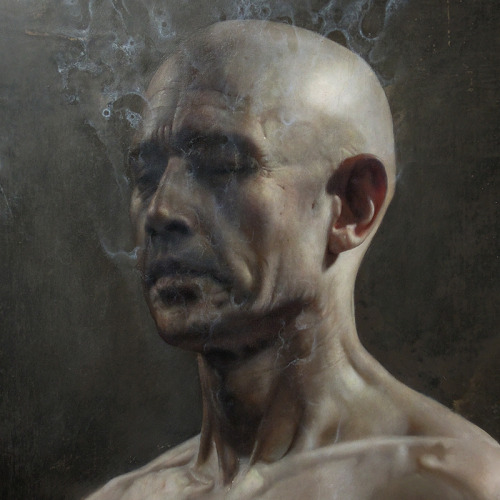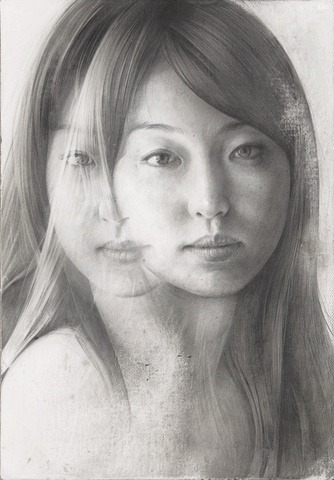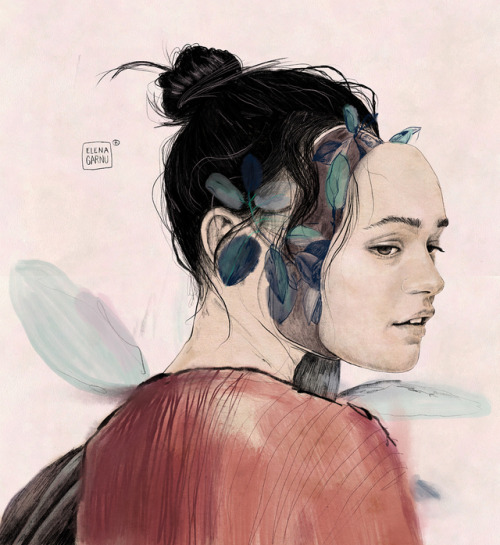

Have you ever wondered what your great-great-grandparents would think of the world today – and how we live – if they were transported here via a time machine?
As a science fiction fan, I find myself contemplating this kind of stuff a lot. Whenever I play these scenarios through my mind, it makes me realize what a truly alien environment we now occupy, relative to past generations – and especially from an evolutionary perspective.
Our lives have changed drastically in too many different ways to recount here, and most of them are actually a net positive. But for those of us who study health and human biology, our patterns of physical activity is perhaps among the most glaring change.
We have discussed this previously in the context of sedentary behavior. Surveys suggest that the average American spends about 13 hours per day sitting, on average, and it is estimated that they typically get around 4774 steps per day (and let’s be honest, a ton of people aren’t even getting that many).
This stands in stark contrast to the tremendous amount of activity that was likely normal for our hunter-gatherer ancestors many thousands of years ago. But it is also markedly less than people living traditional agricultural lifestyles, as would have been fairly typical up to the twentieth century. For example, when researchers gave pedometers to Old Order Amish, they found that these men accumulated more than 18,000 steps per day, just as a part of their normal daily life. Indeed, modern humans are not merely physically inactive relative to their own ancestors, but also compared to other free-ranging non-human mammals. And it is likely that we pay a substantial price in the form of chronic disease.
Most of you are already well aware of this problem, and are trying to combat it. Research investigating the impact of rising sedentary behavior on health outcomes and on performance (both physical and mental) has inspired more and more of us to commit to intense physical fitness regimens and invest in activity monitors, like Fitbits.
But the impact of our rapidly changing lifestyles probably affects us in other more subtle ways, which are less likely to be captured by these tools. One interesting manifestation of this is postural stress induced by our interaction with technology, which has been recently exacerbated by the ubiquity of smartphones, tablets, and other smaller digital devices.
A series of photos by the photographer Eric Pickersgill, aptly titled Removed, draws this effect into sharp relief. Check this out.
In these portraits, people are shown in otherwise mundane settings and events, only the cell phones that were previously clasped in their hands have been carefully edited out. The resulting images are kind of funny but also oddly poignant, as it is quite obvious how disconnected the subjects are from their surroundings and the people around them. But what is also striking about these pictures is the hunched posture assumed by virtually all of these people. With the smartphones extracted from the scene, it becomes really clear how awkward and unnatural this pose is. And yet so many of us spend much of our days like this. In fact, you might be assuming that position right now, as you are reading these words.
Movement and how we inhabit our bodies are integral to the human experience, affecting our health, our performance, and our quality of life. And it goes way beyond just exercise.
That brings me to our guest.
GUEST
On this episode of humanOS Radio, Dan speaks with Aaron Alexander. Aaron is a manual therapist and movement coach who has worked with elite athletes, celebrities, and ordinary folks to relieve pain, increase strength, and optimize their movement patterns. He also hosts the Align Podcast, on which he has interviewed more than three hundred of the world’s thought leaders in the areas of movement and wellness.
Aaron is a unique guy, with remarkable insight into the fundamental role of body posture and body movement in health and performance (and is also an impressive manifestation of those ideas – dude definitely practices what he preaches!).
The foundation of his message revolves around what he calls physical inhabitance. Physical inhabitance is not just walking and working out – it encompasses the way that you sit, stand, walk, breathe, look, touch, listen, communicate, and generally the manner in which you occupy your body at any given moment throughout the day.
To get his message out to a wider audience, Aaron has authored a newly released book called The Align Method: 5 Movement Principles for a Stronger Body, Sharper Mind and Stress-Proof Life. This book lays out his integrated approach of functional movement and body alignment
Becoming aligned isn’t just about sitting up straight, or working out in a gym, or getting 10,000 steps per day. The Align Method is built around five basic optimizations that can be effortlessly integrated into your day:
- Floor Sitting
- Hanging
- Hip-Hinging
- Walking
- Nose Breathing
To learn more about the Align Method, and how paying attention to your physical inhabitance can enhance your health and performance, check out the interview below!
LISTEN HERE
On Soundcloud | Spotify | Apple Podcasts | Google Play | Stitcher | iHeartRadio | Overcast.fm | YouTube
YOUTUBE
SUPPORT
Have you considered becoming a Pro member of humanOS.me? It costs just $9.99 per month, and when you go Pro, you get access to all our courses, tools, recipes, and workouts. Pro members also support our work on blogs and podcasts, so thanks!
LEAVE A REVIEW
If you think other people would benefit from listening to this show, you can help us spread the word by leaving a review at iTunes. Positive reviews really help raise the profile of our show!
TRANSCRIPT
| Aaron Alexander: | The whole book has a golden thread. The first chapter is called posture and personality, so there’s a thread throughout it that your every movement has a meaning and that the book essentially provides the driver’s manual for operating that. |
| Dan Pardi: | Welcome back everybody. Today I have with me, my friend, author, and generally a formulator and share of great ideas, Aaron Alexander. Now, if you haven’t met Aaron, he’s a pretty hulking guy standing at about six foot five extremely fit and strong but as sweet and gentle as they come. |
| Dan Pardi: | What’s the most remarkable aspect of him? Despite the fact that Aaron is such a big fella, he moves with frictionless ease, usually reserved only for kids. Now, you may be used to me interviewing professors about the latest research in carbohydrate storage, or sleep and DNA repair, or something related to the powerful impact that phytochemicals have on our physiology. I do love all of these shows, but I also am keenly interested in speaking with people who are experts at walking the walk and the process and discussion that can take place from their learnings of doing so. |
| Dan Pardi: | Aaron is one of these people and he has a new book out entitled The Align Method: 5 Movement Principles for a Stronger Body, Sharper Mind and Stress-Proof Life. Now, a key aspect of Aaron’s message revolves around something called physical inhabitance. What is physical inhabitance, you ask? It is the way that you sit, stand, walk, breathe, look, touch, listen, communicate and generally occupy your body in any given moment during the day. |
| Dan Pardi: | I wanted to get Aaron onto the show to share his learnings and ideas. So without further ado, Aaron Alexander, welcome to HumanOS Radio. |
| Aaron Alexander: | I love hearing people’s, especially yours because I respect your opinion so much, perception and interpretation of the little bits that they get out of the book. So I love that that was the physical inhabitants piece was the piece that you picked out there. I love that |
| Dan Pardi: | It’s such an important idea that we can be more intentional in terms of how we are spending time on our body. One of the core elements of staying healthy in today’s world. So super excited to talk with you about it today. But before we even dive in there, for those that don’t know about you or your background, tell us about yourself. What led you into this line of work in general? |
| Aaron Alexander: | Probably deep insecurity that translated into slabs of muscle that eventually translated into injuries and dysfunction and anxiety and pain. And then slowly beginning a process of putting the parts back together. And now I’m still in that process today and the off-gassing of that process has been 250 odd podcasts and this book and seeing lots of clients along the way. |
| Aaron Alexander: | And yeah, just becoming more and more enamored with the human experience in general, but in particular movement of the human experience and how it’s so much more than just pull ups and bicep curls and all of the things we typically think of with exercise and fitness. But it’s literally every breath that you’re taking throughout the day, it’s a movement and there is a practice to that. You can cultivate it. Every step that you’re taking as you’re sitting, as you’re standing, as you’re communicating, all of that is a part of our movement practice. And so, that’s kind of, things have gotten weird over the years is what I’m saying. |
| Dan Pardi: | Yes, they have. There are many ideas that are out there and a good way to stress test that is how do they show up in the world? And I think you are an excellent manifestation of these ideas because you really do put them into practice and I know plenty of smart people out there that live more in their head and a little bit less in their body and in their practice of putting good ideas to use. |
| Dan Pardi: | And so, I love the idea, that question of when did you start writing this book? Because it’s usually, or then, well I actually started writing the first word whatever period of time ago, but obviously this process for you that led to, I got to put this down into a book. When did that start, would you say? What was the good time period that you would give this? |
| Aaron Alexander: | Probably three years, which doesn’t sound like that long. I just don’t think I really had… I had a lot of self-doubt, which still occupies myself a bit from time to time. I’m a little bipolar with that where I was like, I’m like, “I can do anything,” to like, “Oh, who am I? What’s the point of anything here?” |
| Aaron Alexander: | But three years ago, I think it started to, the message came through that the world that we’re living in, it’s forming our bodies into the positions that they are, be it good or bad. So the chairs and the, that you’re sitting in or the bus or the airplane or your children in grade school now are staring at screens and being enclosed within the confines of walls that their vision won’t go out beyond say 10 to 20 feet at a time. |
| Aaron Alexander: | All of that structurally and mentally, emotionally forms the way that we think, feel, walk, move, breathe, inhabit our bodies. And so once that seed started to become more apparent and started blooming, it’s really hard to unsee that. So depression is the number one leading cause of disability worldwide presently. It was supposed to be by 2020 but it ended up coming up as sooner than that. |
| Aaron Alexander: | If you look around, the literal definition of depress is to pull down. And if you look around the world, there’s like that interesting photographer where he… I don’t remember his name, but he, you might’ve seen it. It’s really cool. I’m glad that it floated around the internet. He took a bunch of images of various people staring at their cell phone and he removed the phone from their hands. And it was like couples in bed and people hanging out at a bus station, whatever. And every image of those people, they looked like really sad. |
| Aaron Alexander: | It was so fascinating. When you look around the world, if you start to pool, if you were like some hunter gatherer ancestral, what have you, and you’d look around, you’d see all these people just aimlessly staring down into their palm for as much time as they do. You would assume there’s some type of, if it was an animal, you’d assume there was some issue going on. You’d be like, “How can I help?” |
| Dan Pardi: | That is fascinating. I did not hear about that or see it and I’d love to. |
| Aaron Alexander: | Yeah, check it out. I mean, it’s very Google-able. If you type in anything along those lines, the photographer cell phone removed, there’ll be lots of options of it. There’s lots of really interesting research around how our postural patterns affect the way that we think and we feel. There’s the somewhat contentious research that was done in Harvard with Amy Cuddy, that’s the second most popular Ted talk. |
| Aaron Alexander: | And all about how when they’re in the super woman pose, they call it, for a couple of minutes, they took saliva samples and they found that cortisol levels were decreased. Super woman being like an upright stacked aligned position as we call the book. And then when they’re in the inverse, kind of this hunched over what I call the mopey archetype position in the book, cortisol levels increase, stress hormones and testosterone levels decrease. |
| Aaron Alexander: | And so, it’s interesting seeing how you could think of your body almost like you’re conducting an orchestra on your postural patterns. In the book you’ll say like, but you know your cells don’t have eyes, but they can feel you. You know? And so as you’re moving and contorting your body, it’s literally, it’s conducting yourself at a cellular level. A literal term for that is mechanotransduction. |
| Aaron Alexander: | So when you’re twisting and pulling your cells, they have a response. And most of us don’t ever receive any adequate education on how to conduct ourselves at a cellular level, at least from a mechanical perspective. |
| Dan Pardi: | There’s many redundancies and communication pathways that allow this collection of cells that we call a body to respond to our thoughts. The way that we move our body and hold it, it’s an interesting consideration for modern health. You might hold yourself in that position for a huge percentage of the day and then you go for a run or do some pull ups or whatever. There are two different things. |
| Aaron Alexander: | I would assume you’ve had this experience. If you’re in an uncomfortable situation, you’re in a party with people you don’t know or you’re in a country with, and you’re like, “Okay, I don’t really know what to do with that Seinfeld episode.” Or it’s like when you’re naked, you don’t know what to do with your hands. |
| Aaron Alexander: | It’s like, oh you get a belt with pockets. I like put it in my hands. What do I do with these things? That’s same thing what I feel are invoked in myself during those situations. I’ll feel my hands almost like it’s possessed, like reach down into my pocket and pull my phone out and then, Oh, okay. I feel like I’m almost like put my turtle shell. Okay, cool. I’m safe for a second. It’s as though I’m… I have relationships and connections and meaningful things to do, so I’ll look into this screen. It’s kind of like a show that’s… I have something going on in my life. |
| Aaron Alexander: | Alan Watts. He says like everybody’s playing the same game. It’s my game’s more interesting than your game. We have those moments. It’s really a fascinating experience that I got to have in while traveling through Morocco was seeing people, this cultural difference where especially older people were, younger people less, but older people. They were totally okay with being out in the street and standing there and just being. |
| Aaron Alexander: | It doesn’t sound like much, but the implications of that are huge. Western culture in large part stress and anxiety and at least statistically medications went through the roof with all those things. We have this ongoing default mode operating system saying, “Go, go, go, go, go, go, go.” I mean, we can back up from that. Take in the experience. What is it like to actually stand and be in my body? What is it like to stand and notice my breath? What is it like to stand and look up into that tree or look up into the cloud? There’s all this stuff that we did as a child before we got bombarded by all the stress diseases. |
| Dan Pardi: | Before our first child, we did a mindfulness meditation class. And a teacher who had been teaching for many years, Nancy Bardacke she said, children are the best mindfulness teachers. Kids are so much in the now. They’re processing the world with awe, taking in the world around them and not necessarily reaching for a cell phone. |
| Dan Pardi: | Jumping into the book, you talk about five movement principles as being core things that we can work on and focus on to do better in modern life. |
| Aaron Alexander: | Something that stands out that I think is just an interesting part of this conversation is in the same vein as previous is there’s a fellow called James Levine. So the research around sedentary lifestyle and the impacts that has, he’s one of the leading researchers around. And he points out a specific, a really interesting term called neat non-exercise activity thermogenesis. And what that means essentially is the calories that you’re expending through your process of being in your body throughout the day. |
| Aaron Alexander: | Throughout the day we have all of this energy pent up inside of us because our body is never in history, they’re never in history have we done a lot of things including a lot of cool stuff like flying across the globe and there’s a lot of cell phones and I think it’s pretty great that you can just reach into your pocket and ask any of the questions of all of the human knowledge in history and be able to just pull that up. |
| Aaron Alexander: | There’s a lot of cool stuff too, but also we’ve never in history been able to lay on your couch and be able to press buttons and have life pulled to your face. We’ve always needed to move ourselves to life. And within that he says the disparity between certain people depending upon their neat each day is up to a couple thousand calories per person. |
| Aaron Alexander: | And so we’re leaving a lot of energy expenditure on the table through our sedentary lifestyles. This eventually leads back into the five principles we get into the book. But another point that’s interesting in relation to that, bouncing back to more research stuff, Joan Vernikos, she wrote a book called Sitting Kills, Moving Heals. |
| Aaron Alexander: | For the last 40 Years she’s been the director of life sciences would be her title at NASA. And she was studying the effect of space travel with astronauts and the impact essentially from taking yourself out of the effects of gravity, it ends up putting your body through this rapid aging process. So your bones become less dense, your muscle gets replaced with fat cognitive function declines, you essentially warp speed. |
| Aaron Alexander: | You’re like, “Wow, I got back from space and I gained 20 years, crazy.” She found a similar thing happens to people when she would, just lying people in their back because they’re not having those feeling pressure of gravity being distributed through their body vertically. |
| Aaron Alexander: | So then she’d had people lie on their back and similar thing what happened, and what she found was people that would back load their exercise or front load, i.e. like doing a huge CrossFit workout or soul cycle after being sedentary for a large percentage of time would have a significantly less positive effects from that exercise compared to those who would have more titrates of movements throughout their whole entire day. |
| Aaron Alexander: | And if you look at ourselves throughout history, oh yeah, of course, that’s what we would do. You get up with the sun, I mean, it’d be grab some water, maybe wash your clothes or maybe you build a little thing or walk, carry your kids around. Then we take a nap. Then we do it again. It was a really long way of getting into the five principle part. It’s subtle ways that we can integrate more effective movement into our daily life by subtly augmenting things that we’re pretty much already doing. Just not quite. |
| Aaron Alexander: | So in the first introductory chapter described like a golf club when you’re hitting a golf ball, if that face is just ever so slightly askew, you don’t notice the results of the contact, the first caught 30 yards. But then with time all of a sudden, a hundred yards later you’re like, “Damn, that ball is wherever it is.” |
| Aaron Alexander: | You see where the ball wound up. You know? We’re doing that in our daily life. Right now as we’re having this conversation, I’m sitting on the floor, which is one of the principles in the book is just spend more time going through that full range of motion. Before this, I hung on a pull up bar and did a couple of pull-ups and twisted my spine out. It’s in spinal decompression, just a fancy word for saying hanging on a bar. |
| Aaron Alexander: | I hinged my hips as I got down to get on the ground to do this. There’s subtle little things that we can integrate into our lives and most of us we’re waiting for this big panacea peel all pill or movement practice or whatever it is. The Align Method book breaks down all of the leftover biological cash that we’re leaving on the table throughout the day. It’s high lit, all of that extra energy that we’re leaving around. |
| Dan Pardi: | A huge part of the value of human OS is in TUNE training, which stands for integrative and opportunistic training. It’s designed for you to sneak movement into your life and that might mean that if 40 pushups that are a part of that workout program for the day, you can do five here. You can do five there. |
| Dan Pardi: | It gives a little structure on how to integrate movement into my day. Though every day is a little bit different. I have benefited from it in numerous ways, the stability of my movement practice is much different than it used to be because I wasn’t relying on these big movement boluses. Every day could have some movement in it. |
| Dan Pardi: | Secondarily, the cognitive benefits of it are huge. Think about how you feel after you’ve gone for a good workout. You’ve got more blood flow circulating through the body and going to the brain. You feel sharp. |
| Dan Pardi: | Once you connect with that feeling, you’re driven to do movement for reasons other than I should do this because it’s good for me. I can do this and I’m going to perform better at whatever’s in front of me right now. |
| Aaron Alexander: | Michael Moore’s recent documentary, Where Should We Conquer Next? Was essentially going to various different places around the world and he was essentially conquering or taking over or stealing good ideas from them. And so, you walk around and he had this walk into the school system in Finland and he’d have his American flag or like we’re taking your more recess time and less homework. |
| Aaron Alexander: | I think it was Finland. They have the best school system in the world as far as like their grades and their attendance and their system is producing these really brilliant minds. And the big difference between there and the United States is they’re doing so much less, so they have less homework. |
| Aaron Alexander: | Once the kid gets out of school, they need trees, and they need their mother, and they need their friends and they need soccer and they need Frisbee. They need to be human beings. They need to go and get into their bodies and get into their minds and allow this information that we presented in the shorter school day where we let them sleep in as well. And then the minds of the children there end up being much more supple. |
| Aaron Alexander: | Whereas in the United States, at least, it’s forcing a square peg into a circular hole. You’re just like, “Nope, that’s the system. Just keep pushing, pushing, pushing. And then when kids end up going to school, a place of like, “Oh well, I feel like I need to get out of my desk. I’m freaking out. I’m having an anxiety, I’ve got to get out of my desk. I got it. I need to go for a walk.” They’re like, “No, no, no, your brain is broken.” |
| Dan Pardi: | That is absolutely right that we try to fill every moment of a child’s day with some something that is going to increase their ability to get into a school. And in doing so, we’re creating high academic pursuit as a risk factor for an unhealthy life now and later. |
| Dan Pardi: | You could see how the pressures would over time coalesce to keep driving kids, they would need to decompress that whole system. |
| Aaron Alexander: | It’s unlikely that everybody’s going to all of a sudden start entering a Waldorf school or take their kids out of school and move into the woods or something like that. So that would be probably pretty ridiculous. And it would be uncomfortable, at least in culture for a while if that were the change. But what people can do is they can incorporate more time near a window. |
| Aaron Alexander: | So when you are in a room, make sure you put yourself near a window and open the window so you’re actually getting those phytoncides and all those healing chemicals that are coming off of the trees and the plants for you to breathe in and boost your immune system and make sure that you’re getting natural full spectrum sunlight. |
| Aaron Alexander: | Open that window up entirely and take breaks while you’re working. So set up Pomodoro timer and do concentrated work for 25 minutes, say, and then go take a walk for five minutes. Get yourself outside. Take your shoes off and maybe walk on some rocks or walk on a tree root or walk on some grass. |
| Aaron Alexander: | When you have the option to get on an elevator or take the stairs, always take the stairs. There’s so much just sitting on the table. We can slowly gather that stuff up. A huge thing would to just literally spending more time on the ground as you are doing your homework or checking your Instagram notifications or emails or what have you, lay on your belly, lay on your side, get some big cushions and prop your butt up and cross your legs. Do crisscross applesauce or a straddle position. Get a low Japanese style table or coffee table in your house so you can maybe eat on that. |
| Aaron Alexander: | Those subtle little changes and up cultures that do that have minimal to no incidence of osteoarthritis of the hips, very low osteoarthritis of the knees. Pelvic floor dysfunction goes down. Fall risk becomes a nonissue. It’s like what do you mean fall risk? Like I don’t understand how I’ve been getting up and down off of the ground a hundred times a day for my whole life. I don’t all of a sudden just become 80 and not be able to do that. |
| Aaron Alexander: | But in Western culture, because it’s a chair sitting culture, that chasm between standing to ask, to grass all the way down to the ground, it just gets bigger and bigger and bigger until you can’t make the jump anymore and now you become a risk. Now you lose your physical autonomy and you’re dependent on others to just be in your body in a day-to-day basis. |
| Aaron Alexander: | I know without a doubt that can actually be removed from Western culture in large part and then the financial effects of that is billions of dollars of healthcare. There’s a quote from Carl Jung, he said, “Reforms through retrogressions are affordable and sustainable and reforms through technological advancements are expensive and short-lived.” |
| Aaron Alexander: | We’re waiting for that big technological advancement. Well, I’ll just buy a new hip. How about you use the hips you have now? If you don’t appreciate what you have now, you won’t be given more. |
| Dan Pardi: | I had developed quite a bit of rigidity in my body, so I’ve been doing yoga a couple of times a week for over two years now. And the process of unraveling some of that fibrous tissue that had built up for years of sitting, it takes time to do it right. You can make incredible progress in short amounts of time, but to get to where you really want to go, it is daily dedication. Even along the path of getting there, it just feels better and better every day. |
| Aaron Alexander: | Yeah, I mean, your body is analogies in the book and your body is like one of those Russian doll sets. So there’s like the outer most layer which could be, I don’t know, the universe or earth or big outside layer. And then within that you get into maybe like your country and then your community. And Joseph Campbell talks about the process of detribalization. You need to get outside of your tribe to realize like, “Wow, everything that I’m doing is actually very strange. In fact, everything is strange, there is no normal.” |
| Aaron Alexander: | And then you go deeper into the Russian doll set and eventually you have your physical body and your movement. And then underneath that the next layer would be like emotions and feelings and perspectives and fears and hopes. |
| Aaron Alexander: | And then the deeper layer, maybe you call it spirit, whatever belief system you want your doll set to be. But each one of those layers, in order for them to change, the other ones have to follow suit because you can change any layer. And that will trickle into the one in front and the one previous, and it’ll send a ripple throughout. |
| Aaron Alexander: | But the physical experience isn’t purely physical. I mean, if you think that if you just sit on it for a little longer eventually that will change, your physical body is a… Imagine right now if you get scared, where do you get scared? You don’t get scared between your ears. You get scared in your shoulders, and you get scared in your voice and you get scared in your diaphragm and your whole organism is expressing fear. |
| Aaron Alexander: | If you get happy, if you get orgasmic, if you get proud, if you get any of that stuff, where do you experience that? Oh, my toes curled up. Your all body experiences that. You have an embodied experience. So if your mind does not change suit with that sitting glomeration, and adhesion, and tissue, gunk stuff that you’re describing. That just as well can be emotional patting in a world that a person feels unsafe. So it makes sense to maybe hunch over a little bit and roll the shoulders forward and go into this protective suit as you walk through the world because you truly don’t feel safe. |
| Aaron Alexander: | And then in tandem on the other side of that, because it’s just two ends of the same rope, you pull on one and the other one gets pulled along. If you put a person into a mechanical mold that expresses whatever that’s mental emotional expression is, all of a sudden, sure enough, they’ll start feeling a little bit more that way. The physical experience is so much more interesting than what we get taught in two-dimensional textbooks. |
| Dan Pardi: | So you’re saying that the five different strategies that you walk people through in your book about better alignment actually have benefits that transcend just being more physically capable to traverse the world? |
| Aaron Alexander: | The whole book has a golden thread. The first chapter is called posture and personality, so there’s a thread throughout it that your every movement has a meaning and that the book essentially provides the driver’s manual for operating that. The second section gets into the five principles. The third section of it gets into how to augment your environment so that it becomes more aligned in quotations. So your home and your office and your travel, all of those. Those are the molds that you inhabit yourself in and they form you. |
| Aaron Alexander: | And then the last section is called moving your senses. Then it gets very specifically into how people can start to leverage their sense of touch and sound. The sounds in your environment, literally shape your nervous system and shape your body, site staring into whatever it is you’re staring into. All of that literally affects every cell in your body. The book is, originally it was like the encyclopedia of how to drive your body or physical inhabitance is a term I think we made up. I don’t know if I’ve heard that is like a really intentional term. |
| Dan Pardi: | It’s a good one. |
| Aaron Alexander: | Yeah, I like it. I think it’s cool. I mean, I think it really actually represents what it’s about. And then since then having the publishers and the editors really hone us in and make sure that every section has a very specific point and it’s all consistently driving back at the same point. So now it’s the focused encyclopedia on how to operate your body essentially. |
| Dan Pardi: | I love it. I want to circle to in TUNE training for a moment. |
| Aaron Alexander: | Yep. |
| Dan Pardi: | I love the idea. You can decouple a workout and you can intermix movement into your day. The reality is, is that the in TUNE thinking incorporates everything that Aaron is talking about in this book. It’s not just doing some pushups here and there between emails. It’s actually going for a walk, standing, sitting is okay. Sitting is not the new smoking, over-sitting is. |
| Dan Pardi: | We can do all of that, but we need to learn how our body is spending time in different positions across a 24 hour period. I recommend that everybody read this. There’ll be actionable takeaways from this that will make your life better. |
| Aaron Alexander: | I appreciate that. So you referenced James Levine, who is the sitting is the new smoking guy. I have an addendum to that. It’s not that sitting is the new smoking. It’s how you actually do your sitting. If you are going through the motions that we described in the book, for example, of sitting, sitting can actually be really beneficial for you. |
| Aaron Alexander: | It’s just that same you could think of each movement that you’re doing is almost kind of a health supplement of sore throat or a food and if you eat the same zucchini, all you do is just zucchini. At first the zucchini was very nourishing. So sitting for example, for a minute, it’s great. |
| Aaron Alexander: | Any position of your body for the most part, unless you’re blowing a joint out, is quite fine. You’re going into deep spinal flection, maybe [inaudible 00:25:04] in your head into what would be conceived as like depressed. Just like aargh, let your head hang out. It’s fantastic. You’re globally flexing your whole spine. You’re mobilizing yourself. |
| Aaron Alexander: | Do that ever since you’re in a stroll or as a kid and then a child seat and then all throughout school and then inside of the office situation and then the bus and the plane. Now we have an issue. |
| Dan Pardi: | It’s not the position where we are designed to spend 90% of our- |
| Aaron Alexander: | There isn’t a position that we’re designed to spend. That’s the thing. |
| Dan Pardi: | If you’re interested in what we’ve talked about today, the details and strategies about how to implement this are contained here. I’ll put links to the materials in the blog that we will write, but congratulations. It’s a big undertaking. It’s a lifelong work, really. |
| Dan Pardi: | All the different forces that shaped you to arrive to do what you’re doing now and then the initiative to get it done, get it written up and get it published. It’s a nice contribution to our world. So thank you so much for doing it and for coming on to talk about it. |
| Aaron Alexander: | I appreciate the time. Thank you. |
The post The Align Method – 5 Movement Principles for a Stronger Body, Sharper Mind, and Stress-Proof Life. Podcast with Aaron Alexander appeared first on humanOS.me.


















